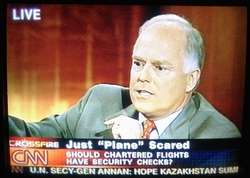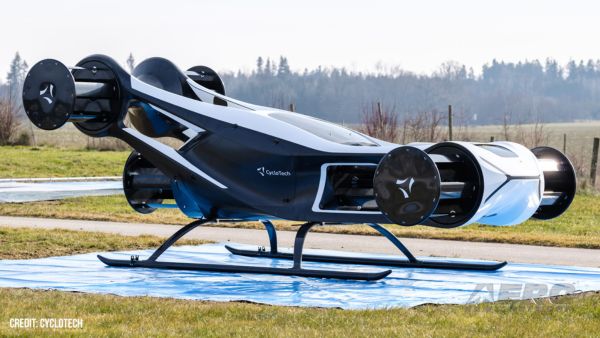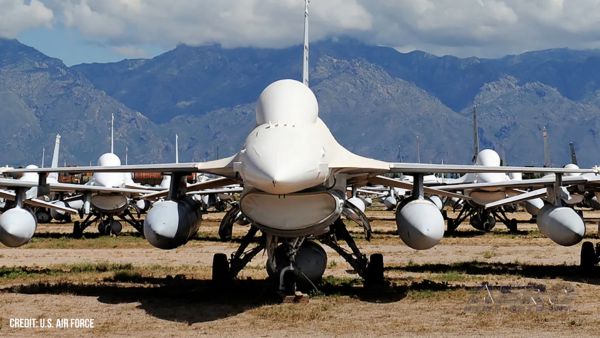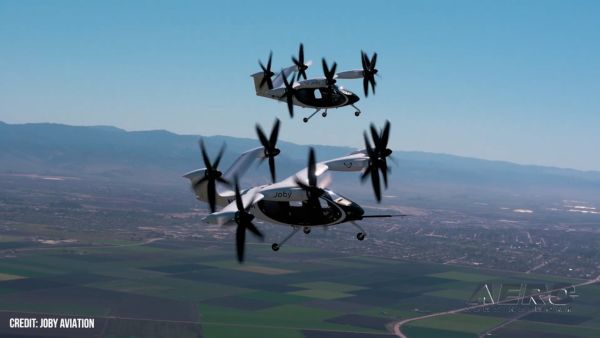Tue, Jun 10, 2003
 NATA President James K. Coyne last week expressed
to Transportation Security Administration (TSA) officials his
strong concerns that the federal government's continuing efforts to
reassure the American public of their security is doing irreparable
harm to the nation's general aviation industry. Coyne's comments to
TSA officials came during a regularly scheduled meeting June 4
involving NATA and other organizations representing different
segments of the general aviation industry.
NATA President James K. Coyne last week expressed
to Transportation Security Administration (TSA) officials his
strong concerns that the federal government's continuing efforts to
reassure the American public of their security is doing irreparable
harm to the nation's general aviation industry. Coyne's comments to
TSA officials came during a regularly scheduled meeting June 4
involving NATA and other organizations representing different
segments of the general aviation industry.
"Time and time again, we see general aviation bearing the brunt
of the federal government's public statements about specific
actions it is taking in the war on terrorism." Coyne said after the
meeting. "It is imperative that policy makers in the administration
understand that they are doing great harm to this industry when
they highlight meaningless restrictions imposed on general aviation
in the name of national security."
 TSA officials in the meeting responded that the
fears expressed by Coyne and others were very real. "You have every
right" to be concerned about the damage the public's perception of
these restrictions is doing to the general aviation industry,
responded one official.
TSA officials in the meeting responded that the
fears expressed by Coyne and others were very real. "You have every
right" to be concerned about the damage the public's perception of
these restrictions is doing to the general aviation industry,
responded one official.
Continuing to publicize either new restrictions on general
aviation or air defense exercises involving single-engine airplanes
- as the Department of Defense did last week - is "leading to
public animosity" toward the industry Coyne said during the
meeting. "There is no need to frighten the American public about
small airplanes," noting that much has been done since September
2001 to improve general aviation security.
 "Public perception is everything," Coyne said
after the meeting. "In the current environment, everything the
federal government does in the security arena is highly publicized.
When the federal government publicizes the things it is doing to
further secure general aviation without publicizing its actions to
secure rental trucks or recreational boats, it leaves the public
thinking that small airplanes are a threat while other activities
are not.
"Public perception is everything," Coyne said
after the meeting. "In the current environment, everything the
federal government does in the security arena is highly publicized.
When the federal government publicizes the things it is doing to
further secure general aviation without publicizing its actions to
secure rental trucks or recreational boats, it leaves the public
thinking that small airplanes are a threat while other activities
are not.
"I think the history of terrorist attacks in the U.S. and abroad
demonstrates that general aviation is not the threat many in the
federal government would have the public believe," Coyne concluded.
"Yet, that's not the message being sent by the government. That
message needs to change."
More News
About 100 Ft Above Ground Level, The Engine Lost Total Power On April 14, 2025, about 1003 Pacific daylight time, an experimental amateur-built Hy-Tek Hurricane HP, N9088G, was sub>[...]
Flight Check A call-sign prefix used by FAA aircraft engaged in flight inspection/certification of navigational aids and flight procedures. The word “recorded” may be a>[...]
“While our traditional mechanical magnetos will be around for a long time, Hartzell Engine Tech acquired E-MAG to expand its PowerUP Ignition System product portfolio into bo>[...]
Primary Radar A radar system in which a minute portion of a radio pulse transmitted from a site is reflected by an object and then received back at that site for processing and dis>[...]
Also: ‘Sonoran Beauty’ Jump-Qualified, IAG Orders, FAA Shuts Down ATC Oversight, EAA Joins Modern Skies Slovakia-based developer Klein Vision recently unveiled the prod>[...]
 NTSB Prelim: Hy-Tek Hurricane HP
NTSB Prelim: Hy-Tek Hurricane HP ANN's Daily Aero-Term (05.14.25): Flight Check
ANN's Daily Aero-Term (05.14.25): Flight Check Aero-News: Quote of the Day (05.14.25)
Aero-News: Quote of the Day (05.14.25) ANN's Daily Aero-Term (05.15.25): Primary Radar
ANN's Daily Aero-Term (05.15.25): Primary Radar Airborne 05.12.25: $1M Flying Car, Marion Airport Saved, AirVenture Cup
Airborne 05.12.25: $1M Flying Car, Marion Airport Saved, AirVenture Cup





